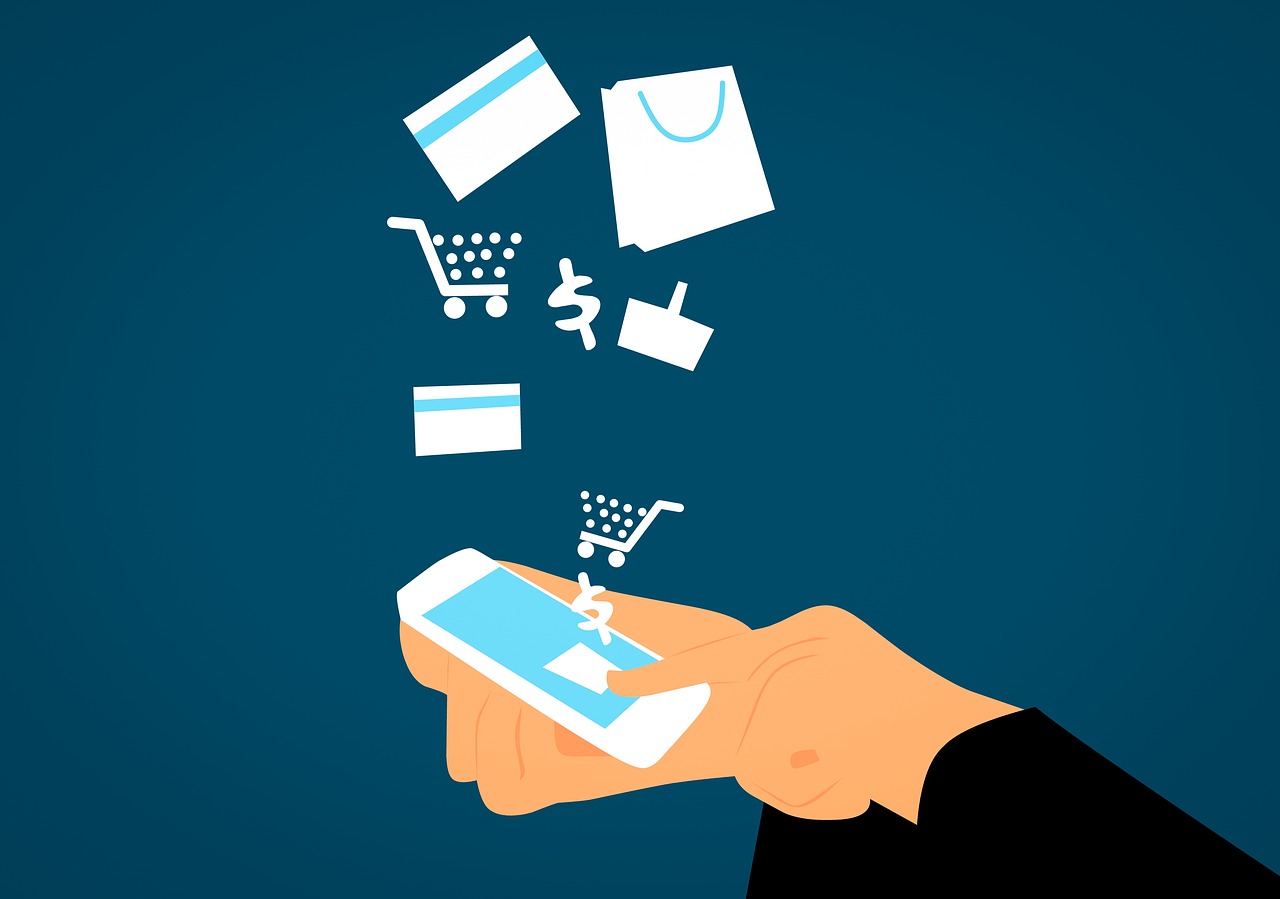Tech
Mobile Commerce Trends: Do You Need a M-Commerce App in 2023?

Twenty years ago, our parents could only dream of convenient shopping from any place they were with the help of a small device in their pocket. Today, dreams come true, and there is no surprise in getting clothes, groceries, or booking tickets via mobile phone. M-commerce is emerging as the friendliest shopping method through safer mobile payments, technological advancements, and the rise of specialized m-commerce apps. Let’s dive deep.
What is M-Commerce?
Mobile commerce (m-commerce) refers to purchasing and selling goods and services via a mobile device, such as a smartphone or tablet. M-commerce has been increasing in recent years and is expected to grow in the coming years.
According to Statista, mobile e-commerce sales reached $2.2 trillion in 2023, accounting for 60% of all e-commerce sales worldwide. This share has steadily increased, from 56% in 2018 to an expected 62% in 2027.
Key m-commerce trends to watch in 2023 and beyond:
- Increased mobile shopping: More and more people are shopping on their mobile devices. M-commerce will account for over half of all e-commerce sales by 2025.
- Social commerce: Using social media platforms to buy and sell products and services. Social commerce is becoming increasingly popular, especially among younger consumers.
- Voice shopping: Utilizing voice assistants like Siri and Alexa to buy and sell products and services. Voice shopping is still in its early stages of development. Still, it is expected to snowball in the coming years.
- Shopping with Augmented reality (AR) and virtual reality (VR): these experiences allow consumers to try on clothes, furniture, and other products before buying them. AR and VR shopping are still in their early stages of development. Still, they have the potential to revolutionize the way people shop.
- Contactless payments: Apple Pay and Google Pay allow consumers to receive goods and services without swiping or inserting their credit or debit cards. Contactless payments are becoming increasingly popular.
These are just a few vital m-commerce trends to watch in 2023 and beyond. As e-commerce grows, we expect even more innovative and exciting shopping experiences to emerge.
How to prepare for the future of m-commerce
If you are a business owner, there are some things you can do to prepare for the future of m-commerce and keep up with the trends:
1. Make sure your website is mobile-friendly: Your website should be easy to navigate and use on mobile devices.
2. Provide mobile payment options: Make it easy for customers to pay for their purchases on their mobile devices.
3. Invest in social commerce: Use social media platforms to promote your products and services. Connect with customers and receive feedback.
4. Accept contactless payments: Offer contactless payment options to your customers to make paying for their purchases easier.
By taking these steps, you can ensure that your company is well-positioned to succeed in the future of e-commerce.
Mobile app development in the era of m-commerce
There is no way of talking about m-commerce, not mentioning mobile app development. You use your smartphone to buy something online.
Mobile app development services are an array of services that help businesses to develop and launch mobile apps. The implementation areas may vary: healthcare, financial, agricultural, or construction mobile apps provide the best performance and encapsulate all the peculiarities of the domain.
Different types of mobile app development services are available, and the specific services that a business needs are determined by the size and complexity of the app, the target group, and the business’s budget. However, some standard mobile app development services include:
Ideation and design: working with the customer to understand their business needs and goals and to develop a concept and design for the app.
Development: writing the code for the app and implementing the desired features and functionality.
Testing: examining the app to ensure it is bug-free and works as expected.
Deployment: Publish the app to the appropriate app stores. Apple App Store and Google Play are among the widely known.
Many mobile app development companies offer additional services such as maintenance & support, app marketing and promotion.
M-commerce pros and cons
There are a set of benefits and disadvantages to using mobile app development services. Let’s take a look them.
Pros
- Accessibility. M-commerce is democratizing online shopping by extending its reach to even remote areas. It makes online shopping more accessible and inclusive for everyone, regardless of location, and fosters economic growth in rural and underserved communities.
- Reduced response rate. Mobile apps have a significant advantage over web browsers regarding response time. Mobile apps are created for specific devices and can use the device’s hardware and software resources. As a result, mobile apps can perform tasks more quickly and efficiently than web browsers.
- Social media integration. M-commerce also integrates with social media platforms like Instagram, TikTok, and Pinterest. It allows brands to foster deeper community ties and loyalty among consumers.
Cons
- The culture of instant gratification. With features like one-click transactions and same-day or next-day delivery, consumers have come to expect immediate gratification. This can diminish the joy of anticipation traditionally associated with shopping and affect broader perspectives on patience in life.
- Impulse purchasing. With our smartphones in our pockets, we can now browse and purchase products from anywhere, anytime. This convenience has led to a surge in impulsive buying decisions, as customers are constantly bombarded with targeted marketing messages and have access to a vast selection of products with just a few taps.
- Challenge for local businesses. Online platforms like Amazon and Walmart offer many products and services at attractive pricing, making it difficult for small, locally-owned businesses to compete. M-commerce can also lead to customers sidelining neighborhood brick-and-mortar establishments in favor of the convenience and wide selection of online products.
Wrapping up
M-commerce is a steadily growing industry that has already reshaped online shopping. Such technologies as voice shopping, augmented reality, social commerce, and contactless payments will form the e-shopping future.
Mobile app development services can be valuable for businesses that want to develop and launch mobile apps. If you own an e-commerce business, ensuring your website and mobile app are upgraded for mobile shoppers is crucial. Using social commerce platforms to reach your target audience on their mobile devices would be best.
Tech
The Importance of Cyber Hygiene: Tips from HelpRansomware Experts

Byline: Katreen David
In the digital age, the adage “an ounce of prevention is worth a pound of cure” has never been more relevant.
For Juan Ricardo Palacio and Andrea Baggio of HelpRansomware, the battle against digital threats is a daily reality. Founded in response to the growing menace of ransomware, HelpRansomware has made it its mission to recover data while educating the public on the importance of cyber hygiene.
“Preventing a cyberattack before it happens is crucial. We can safeguard digital assets more effectively by nipping the threat in the bud through vigilant monitoring and proactive measures,” says Baggio.
The Growing Threat of Cybercrime
Cyber threats have become increasingly pervasive and sophisticated, impacting businesses and individuals alike. According to research, there are an estimated 2,000 cyberattacks per day globally. This equates to over 800,000 cyber crimes annually. In line with this, the worldwide cost of cybercrime is projected to reach the $23 trillion mark by 2027.
This alarming figure highlights the critical need for robust cybersecurity practices. HelpRansomware has responded to this challenge by accentuating the importance of preventive measures. “Our goal is to create a safer digital environment where cyber hygiene is as natural as brushing your teeth,” says Palacio.
Cyber Clean: Maintaining Digital Hygiene
HelpRansomware advocates for a proactive outlook on cybersecurity. It offers practical tips for maintaining good cyber hygiene, such as regularly updating software, using strong and unique passwords, developing risk management plans, and educating employees about phishing scams.
“Cyber hygiene is about taking small, consistent actions to protect your digital assets,” explains Palacio. “When we practice good cyber hygiene, the chances of cyber attacks occurring shrink significantly.”
Businesses can significantly reduce cyberattack vulnerability by integrating these practices into daily routines.
HelpRansomware’s Role in Promoting Cyber Hygiene
Beyond recovery services, HelpRansomware is dedicated to raising awareness and providing education on cybersecurity best practices. It conducts workshops and seminars to help organizations understand the importance of cyber hygiene. This unique initiative mirrors the company’s sincere efforts toward shielding the world from the dark side of the web.
“Education is the first line of defense against cyber threats,” emphasizes Baggio. “Francis Bacon’s famous quote will always ring true in every industry: ‘Knowledge is power’.”
HelpRansomware’s efforts are power moves across the board that help businesses recover from attacks. Its checkmate move, however, is its vision to build a culture of prevention that can safeguard against future threats.
In an era where cyber threats lurk around every unlikely corner of the internet, the importance of cyber hygiene cannot be overstated. Through its innovative solutions and educational initiatives, HelpRansomware is leading the pack in promoting better cybersecurity practices. “We believe that a well-informed and vigilant community can defeat cybercrime,” concludes Baggio.
HelpRansomware’s proactive stance on cyber hygiene is setting new standards in the industry. Through education and preventive practices, Andrea Baggio and Juan Ricardo Palacio are fortifying the digital community, making sure that future cyber threats are met with informed and resilient defenses. Cleanliness matters in both the tangible and digital world.
-

 Tech4 years ago
Tech4 years agoEffuel Reviews (2021) – Effuel ECO OBD2 Saves Fuel, and Reduce Gas Cost? Effuel Customer Reviews
-

 Tech6 years ago
Tech6 years agoBosch Power Tools India Launches ‘Cordless Matlab Bosch’ Campaign to Demonstrate the Power of Cordless
-

 Lifestyle6 years ago
Lifestyle6 years agoCatholic Cases App brings Church’s Moral Teachings to Androids and iPhones
-

 Lifestyle4 years ago
Lifestyle4 years agoEast Side Hype x Billionaire Boys Club. Hottest New Streetwear Releases in Utah.
-

 Tech7 years ago
Tech7 years agoCloud Buyers & Investors to Profit in the Future
-

 Lifestyle5 years ago
Lifestyle5 years agoThe Midas of Cosmetic Dermatology: Dr. Simon Ourian
-

 Health6 years ago
Health6 years agoCBDistillery Review: Is it a scam?
-

 Entertainment6 years ago
Entertainment6 years agoAvengers Endgame now Available on 123Movies for Download & Streaming for Free
